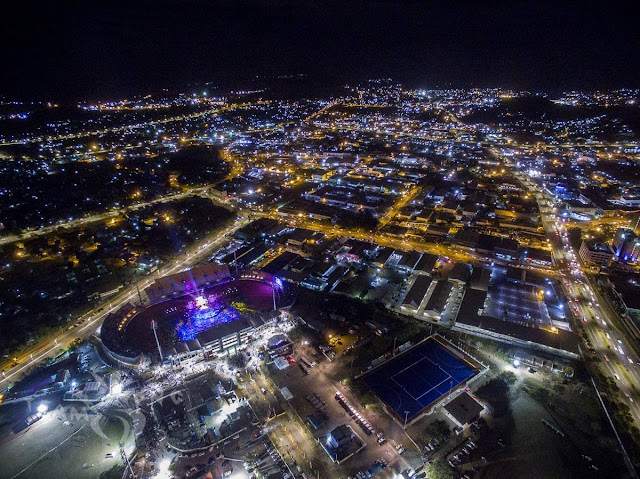Is Papua New Guinea really as dangerous as people say?
by SIMON SHEN
Recently I made a trip to Papua New Guinea, the remote southwestern Pacific island country that is due to host the 2018 Asia-Pacific Economic Cooperation (APEC) summit in November.
Recently I made a trip to Papua New Guinea, the remote southwestern Pacific island country that is due to host the 2018 Asia-Pacific Economic Cooperation (APEC) summit in November.
Before I set out for the place, I was warned by a number of my friends, including seasoned war correspondent Susanna Cheung Chui-yung, that Papua New Guinea has a reputation of being “the world’s most dangerous place”.
Given that I got such advance warnings from my friends even in the past when I decided to travel to places such as Brazil, Paraguay, Pakistan and Palestine, I was not too perturbed.
There is no shortage of stories and hearsay on the Internet about how dangerous and horrible Papua New Guinea is. Yet the more dangerous it sounded, the more I wanted to find it out myself.
There is a prevailing notion that there is a structural reason behind the poor law and order conditions in Papua New Guinea, more commonly known as PNG among international travelers: the country has a whopping unemployment rate of over 60 percent.
Ever since the PNG gained independence from Australia in 1975, only its capital city, Port Moresby, has undergone rapid modernization and urbanization.
As a result, over the years young Papuans from all over the country have continued to flock to the capital to look for jobs, thereby giving rise to slums across the city, which are highly reminiscent of the notorious slums in Rio de Janeiro, Brazil.
As many of the young Papuans dwelling in Port Moresby were unable to find jobs, many of them have turned into members of street gangs, who often set up their own roadblocks within the city to rob local motorists and foreign tourists, and hence country’s bad name.
Nevertheless, I have serious reservations about the accuracy of the so-called “60 percent unemployment rate” of the country.
It is because in PNG, only 15 percent of the populations are living in urban areas, while the rest are scattered across the country’s vast rural regions.
These rural Papuans are predominantly self-employed and self-sufficient farmers, which means the conventional concepts of employment and unemployment virtually don’t apply to them.
Apart from street gangs, another reason why PNG has come across as being a dangerous place to foreigners is that the country is still by nature pretty much a tribal society that is home to thousands of different tribes speaking as many as 800 different languages and dialects, and tribal wars have remained rampant across the nation, particularly during elections.
Intriguingly though, many members of native tribes in PNG sometimes don’t even know what they are actually fighting for. All they know is that tribal conflicts have become part of their daily lives.
However, it is important to point out that tribal wars in PNG rarely involve or affect the country’s non-tribal populations, let alone foreign tourists. And because of that, the local police are pretty unwilling to intervene in local tribal conflicts.
Another reason why PNG has earned such a bad reputation is that according to some urban myths circulating on the Web, “70 percent of female native Papuans have fallen victim to sexual abuses”.
Again, I feel compelled to take issue with this claim. It is because on one hand, the PNG government can’t even get its census data accurate, not to mention the precise number of victims of sex crimes.
Then on the other, it is true that some tribes in PNG still preserve the centuries-old practice of “snatching women” as part of their “coming-of-age” ceremonies for young males.
Yet such practices, like human cannibalism which was still found among some local tribes decades ago, are dying out quickly as legends, and no longer have any significant implication for the mainstream PNG society.
Although there were indeed some cases in which foreign females were raped and there were even rape-murder cases of those women in PNG, many native Papuans are actually feeling very indignant at the unfair sweeping generalization and embellished accounts in the Western media about the state of sex violence in their country.
In fact Papuans believe that the whole thing could have been a conspiracy of an organized smear campaign carefully perpetrated by the Australian media in an attempt to “prove” that the PNG people are unable to govern their own country properly after the departure of the white colonists.
Based on what I saw and experienced first-hand during my stay in PNG, I can say that there are actually a lot of very nice and friendly people in the country, who simply reminded me of the kind of human touch that is long gone in big cities.
This article appeared in the Hong Kong Economic Journal on Oct 5








Comments
Post a Comment
Please free to leave comments.